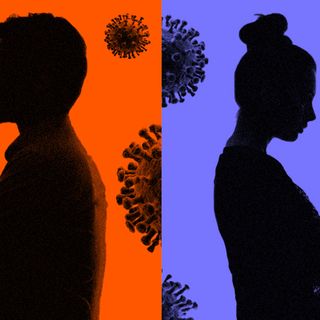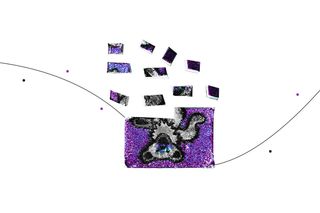
Untrending: Microdosing LSD May Be No Better Than a Placebo
The largest study of microdosing to date found participants who took a placebo experienced similar effects.

In Untrending, we side-eye the latest fads so we know what we’re getting ourselves into — and what (if anything) we’re getting out of them.
Recreational drugs have a long history of straddling the line between potential medical breakthroughs and dubious, addictive reputations. MDMA or ecstasy has the potential to help alleviate depression and PTSD. Psilobycin or magic mushrooms could help treat Alzheimer’s disease and addiction.
However, the most popular of these potential interventions is LSD (lysergic acid diethylamide). In especially small doses, known as microdoses, the psychedelic drug is purported to provide a host of anecdotal benefits ranging from a higher level of energy, more creativity, greater concentration, better mood, higher desire to socialize, and improved stamina. Some research studies have shown that LSD microdoses can decrease the amount of pain our brains feel and increase positive mood and attention.
However, research just published in the journal eLife disputes both the research and the hype around LSD microdosing. Results from the study — the largest placebo-controlled LSD microdosing trial ever — soundly suggest all positive effects felt by LSD microdosers are a result of the placebo effect — a phenomenon in which people can experience benefits after the administration of an inactive ‘look-alike’ substance or treatment.
“Our findings confirmed some of the beneficial psychological effects of microdosing from anecdotal reports and observational studies, such as improved sense of wellbeing and life satisfaction,” Balázs Szigeti, lead author and a research associate at Imperial College London’s Centre for Psychedelic Research, told The Guardian. “But we see the same improvements among participants taking placebos. This suggests that the improvements may not be due to the pharmacological action of the drug but can instead be explained by the placebo effect.”
Related on The Swaddle:
Scientists Explain How Psychedelic Drugs Can Lead People to Lose Their Sense of Self
Participants in this new trial were divided into three groups: one section microdosed on LSD daily, the second received a placebo, and the third went half-and-half. Results from objective tests showed that all three groups experienced similar improvements in cognitive and psychological function, including mental acuity.
However, in more subjective tests, individuals who took the real drug showed a marginal increase in mood and creativity. This slight benefit was a bit higher with individuals who had somehow guessed they were taking the drug rather than the placebo. Researchers feel this only serves to further confirm the placebo effect, because “microdosers are a self-selected sample with optimistic expectations about psychedelics and microdosing.” Another piece of evidence that supports this claim is that you’re not actually supposed to ‘feel’ a microdose of LSD — its effects on the body are similar to antidepressants, rather than psychoactive substances like caffeine, marijuana, or even higher doses of LSD.
While this study is both self-reported and doesn’t carry the same high standards of research as a lab study, most other research on microdosing fails to meet high standards due to its lack of placebo controls. Practically all microdosing studies have used extremely small sample sizes; this one had 1,630 participants who signed-up, 240 who started the study, 191 who completed the study, and 159 individuals who completed the optional follow-up.
A major reason why research on psychedelics faces several constraints is their classification as Schedule I drugs, i.e. drugs with no accepted medical use and a high potential for abuse. Even microdosing on LSD may lead to potential negative side effects including changes in sleep quality, withdrawals, gut problems, and, in serious cases, serotonin syndrome.
Beyond that, there’s no way to legally obtain LSD that has been cleared for therapeutic usage. Therefore, obtaining and continuing LSD microdosing becomes a game of chance. Research has previously confirmed that microdosers don’t really know the dosage quantity they’re taking on a daily basis, which can lead to several side effects. Microdosers may also not be aware of whether the LSD is contaminated with a more harmful chemical, which can lead to serious consequences.
In this case, it might be best to leave the testing to the researchers and stick on the safe side until microdosing has legitimate evidence and guidelines with respect to composition, dosage, and viability.
Aditi Murti is a culture writer at The Swaddle. Previously, she worked as a freelance journalist focused on gender and cities. Find her on social media @aditimurti.
Related


Punjab Proposes Death Penalty for Makers of Illegal Liquor Linked to Fatalities
